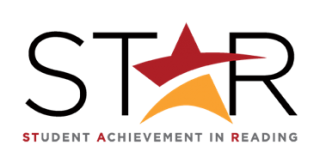
In this blended training, learn STAR/EBRI strategies and practices that will enable you to support intermediate readers in making measurable gains.
STAR (Student Achievement in Reading) focuses on building the reading skills for adult learners at the intermediate level grade level equivalents (GLE 4-8.9). National student outcome data shows that pre-adult secondary education (ASE) students make measurable gains in reading achievement when STAR’s structures and practices are implemented.
- Teachers of reading at GLE 4-8.9
- Directors of programs implementing STAR
This professional development activity/course is designed for:
The seven month STAR training includes three face-to-face sessions, 30 self-paced online modules, an online community of practice, and technical assistance/coaching.
ACLS has invested in providing STAR—an intensive, high-quality training for teachers of intermediate-level learners—at no cost to programs since 2010 because the evidence base for the training has proven that it is a successful instructional model.
The foundation for STAR is the body of evidence-based reading instruction (EBRI). EBRI strategies have been shown to be effective in helping adult learners make academic gains. WIOA requires that all programs offer instruction in the essential components of reading to all levels of ABE, from GLE 0-12. STAR training will help you to fulfill that requirement for GLE 4–8.9.
Face-to-face sessions will be held at Quinsigamond Community College in Worcester, MA:
- Day 1: Monday, 11/5/18
- Day 2: Monday, 2/4/19 (snow date 2/6/19)
- Day 3: Friday, 5/3/19
Consistent with ACLS’ focus on outcomes rather than processes, program participation in STAR is recommended but not required. Programs opting to participate in STAR training, however, must complete all components:
- Participation in and completion of the face-to-face sessions and the online modules
- Administration of diagnostic reading assessments to determine and prioritize individual learner’s areas of strengths and needs in alphabetics, fluency, vocabulary, and comprehension
- Implementation of direct and explicit instruction, using the most relevant evidence-based reading instruction (EBRI) techniques
- Instruction that is continuously monitored by teachers and learners to gauge its effectiveness (formatively assessed)
- Participation of STAR teachers in annual site-observations by MA STAR-certified trainers, and implementation of their feedback
-
Conduct diagnostic assessments
Group students according to instructional needs based on the results of the diagnostic assessments
Organize an instructional reading routine
Plan and deliver evidence-based reading instruction (EBRI) in the essential components of reading—fluency, alphabetics, vocabulary, and comprehension—for intermediate level learners (GLE 4–8.9)
Use explicit instruction methodologies
Monitor and adjust instruction as students’ needs change
Revise programmatic structures that would support STAR implementation
Upon completion of this professional development activity/course, you will be able to:
If you or a coordinator and/or intermediate-level ABE teacher(s) would like to participate in the STAR training, please fill out and submit the STAR Program and STAR Classroom information forms by Friday, October 12, 2018, as well as registering.
Quinsigamond Community College
670 West Boylston St.
Worcester, MA 01606
United States


